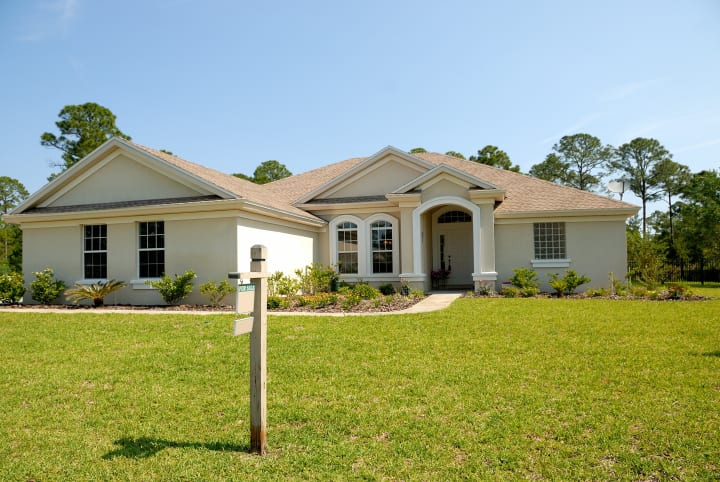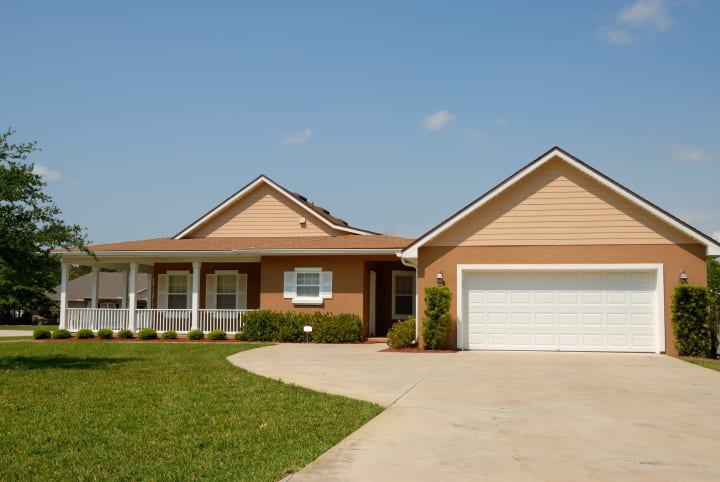The Battle of Homeownership: Rent-to-Own vs. Mortgage - Let's Compare
Which one will make you a homeowner sooner

Rent-to-own and traditional mortgage are two popular options for individuals looking to own a property. Rent-to-own, also known as lease-to-own, is a type of contract in which a tenant has the option to buy the property they are renting after a specified period, typically between 1 and 3 years. On the other hand, a mortgage is a loan used to finance the purchase of a property, with the borrower paying back the loan over a set period, usually between 15 and 30 years. In this article, we will explore the differences and advantages of rent-to-own versus mortgage.
The Differences Between Rent-to-Own and Mortgage
One of the main differences between rent-to-own and mortgage is that the former offers more flexibility in terms of the initial down payment. Rent-to-own agreements usually require a lower down payment than traditional mortgages. With rent-to-own, the tenant typically pays an option fee, which is a percentage of the property's purchase price, to secure the right to buy the property at a later date. In contrast, traditional mortgages require a down payment of at least 3% to 20% of the property's purchase price, depending on the lender's requirements.

Another difference between the two options is that rent-to-own agreements allow tenants to "test drive" the property before committing to a purchase. This means that tenants can live in the property for a specified period before deciding whether to buy it. In contrast, with a traditional mortgage, the borrower commits to buying the property from the outset, and the purchase cannot be canceled without significant financial penalties.
Advantages of Rent-to-Own
Rent-to-own can be an attractive option for individuals who may not have the credit score or financial means to secure a traditional mortgage. According to the Urban Institute, approximately 26 million people in the United States have subprime credit scores, making it challenging for them to secure a traditional mortgage. Rent-to-own agreements offer these individuals an opportunity to become homeowners while improving their credit score over time.
Another advantage of rent-to-own is that it allows tenants to build equity in the property while renting. The option fee and a portion of the monthly rent are typically applied towards the purchase price of the property, meaning that the tenant builds equity with each payment. In contrast, renting does not offer any equity-building opportunities.

Advantages of Mortgage
Traditional mortgages have several advantages over rent-to-own agreements. One of the main benefits of a mortgage is that it offers more certainty and stability than rent-to-own. With a mortgage, the borrower knows exactly how much they need to pay each month, and for how long, making it easier to plan and budget for the future. In contrast, rent-to-own agreements often have more variability in terms of the monthly payment amount and the purchase price of the property.
Another advantage of mortgages is that they offer more affordable long-term payments than rent-to-own agreements. According to a study by Zillow, mortgage payments are, on average, cheaper than monthly rent payments in the United States. This means that over the long term, owning a property through a mortgage is likely to be more affordable than renting a property or entering into a rent-to-own agreement.

According to a recent report by the Joint Center for Housing Studies of Harvard University, nearly 12 million renters in the United States are qualified to obtain a mortgage, but they have not made the transition from renting to owning. However, the report also shows that over the past few years, a growing number of renters have transitioned into homeownership. In fact, the report found that over the past decade, the number of renter households that have transitioned into homeownership has increased by approximately 16%. This indicates that more and more renters are becoming homeowners, which could be due to a combination of factors such as improved financial stability, lower mortgage interest rates, and rising home values.
Conclusion
Both rent-to-own and mortgage have their advantages and disadvantages, and which option is best for you will depend on your individual circumstances. Rent-to-own can be an attractive option for individuals with subprime credit scores or limited financial means, while a mortgage offers more certainty, stability, and affordability over the long term. Ultimately, the decision between rent-to-own and mortgage will depend on factors such as your credit score, financial situation, and long-term goals.
About the Creator
La'Mont Payne
Here to provide you with valuable content, to make your life easier through extensive research of top trending products. My team of experts and myself deliver informative reviews, guides, and tutorials to help you make informed decisions.






Comments
There are no comments for this story
Be the first to respond and start the conversation.